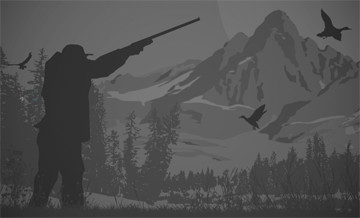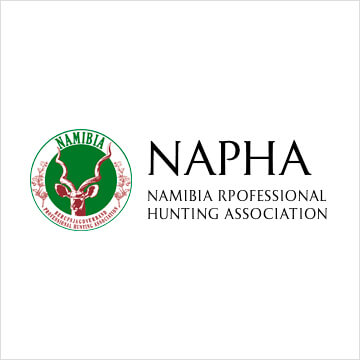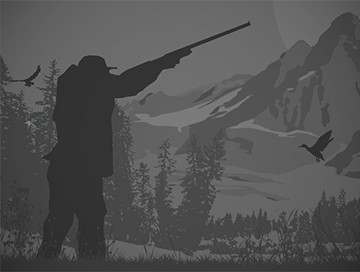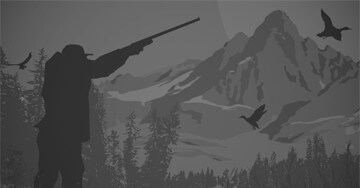Hunting in Namibia
View 221 hunts View all hunts221 hunting trips from 45 outfitters starting from $247
Namibia on map
About hunting in Namibia
A proud 40-year history of ethical, reasonably priced trophy hunting of the highest standard in Namibia has revealed that sustainable utilization of wildlife resources has been a major factor in protecting Namibia's game populations. Even depleted game species, which formerly populated areas of Namibia, have been re-introduced through effective game management based on the principle of conservation through selective hunting. For the international hunting clientele, one of the main attractions of hunting in Namibia is the high standard of ethics maintained by the Namibia Professional Hunting Association (NAPHA).The Namibia Professional Hunting Association was founded in 1974 in order to promote Namibia as a hunting destination internationally and protect the right to hunt locally. NAPHA works hand in hand with the Directorate of Resource Management of the Ministry of Environment and Tourism (MET) not only for legal ethical hunting but also to ensure sustainable use hunting is the backbone of conservation in Namibia. This is echoed in NAPHA's Mission Statement: "The fundamental purpose of NAPHA is to enhance and maintain, by effective management, an organizational infrastructure that can serve professional hunting members, clients and other interest groups. Our intent is to ensure and promote ethical conduct, sustainable utilization of natural resources, and to secure the industry for current and future generations. The Association insists that its members provide the highest standard of professional service to international hunting guests. They are expected to hunt strictly in accordance with the ethical principles as stipulated in NAPHA's Hunting Code. The Hunting Professional is at all times encouraged to act responsibly towards nature, wildlife and the local population." These values are shared by BookYourHunt and is why we are so proud to be a partner with and sponsor of NAPHA. Only NAPHA outfitter members are allowed to offer their hunts on BookYourHunt so when you book your safari in Namibia from the vast selection on our website you know you are booking with a consummate professional.
What you need to know
-
1. Planning your trip
-
2. Upon arrival
-
3. Hunting
-
4. After the hunt
Planning your trip
Visas
Citizens of the USA and most European countries who are visiting Namibia for 90 days or less are issued a visa on arrival and no advance application is necessary. Be sure to have several blank pages in your passport, and be sure your passport is valid for at least six months after your planned departure. Check the visa rules that apply to your passport type at this link: https://namibia.visahq.com/
Upon arrival
Temporary gun licence
Most hunting clients arrive at Hosea Kutako International Airport in Windhoek. After landing, the hunter walks to the arrival hall to fill out an arrival form and then proceeds through Immigration. Once through Immigration, go to baggage claim and retrieve your luggage, then find the small office (back toward Immigration) with a sign that reads “Arms and Ammunition.” Here, you will identify your gun case and fill in a simple form that will serve as your temporary gun license/permit. All you need is your gun information and the address of where you will be staying in Namibia, which the outfitter should provide to you. After filling out your form and retrieving your gun case, proceed through Customs. Your outfitter will most likely meet you outside the door to drive you to your hunting area.
Hunting
Most hunts in Namibia are spot-and-stalk or safari style, with the hunters covering ground either on foot or by vehicle and, once an animal is spotted, completing a stalk on foot. Some safaris can require extensive walking; others require very little, so it’s a good idea to ask the professional hunter.
Clothing and Gear
Dark green or brown clothing is best, as are boots with soft soles for quiet stalking. You’ll only need a couple of changes of clothing as laundry is done daily at most camps. Bring a wide-brimmed hat, sunblock, good optics, and a jacket for cool mornings and evenings.
Rifles
Most professional hunters recommend rifles in the .300-caliber family for plains game and .375 for dangerous game, but the most important thing is to bring a rifle you are familiar with and can shoot well. Handguns and semiautomatic rifles are not allowed in Namibia.
After the hunt
Tips
Tips are appreciated at most safari camps in Namibia; in addition to the professional hunter, tracker(s), driver, and skinner(s), there are usually staff members at camp who handle cooking and cleaning and other chores and help to make a hunter’s stay pleasant. The professional hunter or outfitter can advise the hunter how much is appropriate to tip each staff member.
Trophy preparation
Typically, animals are skinned at the safari headquarters and all skins are cleaned and salted; skulls and horns are cleaned and buried in salt. After a couple of days, the skins are hung to dry, cleaned once more, and folded and stored in a skinning shed. Skulls will be cleaned and placed on a rack. Before leaving camp, it’s a good idea to ensure the skulls and skins are properly tagged with the hunter’s name and contact information.
Taxidermy
Once the hunter departs, or sometimes at the end of the season, trophies will be taken to a taxidermist for professional cleaning and dipping, which is required for export. The taxidermist then contacts the hunter for instructions regarding preparation and shipment, and to arrange payment for these services. The taxidermist then contacts a shipping agent, who will handle the permits and shipping to the hunter’s home country, again after contacting the hunter. Hunters should check the latest regulations in order to make arrangements in advance if they are hunting species that require CITES permits or special export or import permits from the hunter’s home country. Many export and import requirements for these species have undergone dramatic changes in the past couple of years.
Price distribution
Special offers
Reviews
Interested in this destination? Create a subscription to get offers right to your inbox





